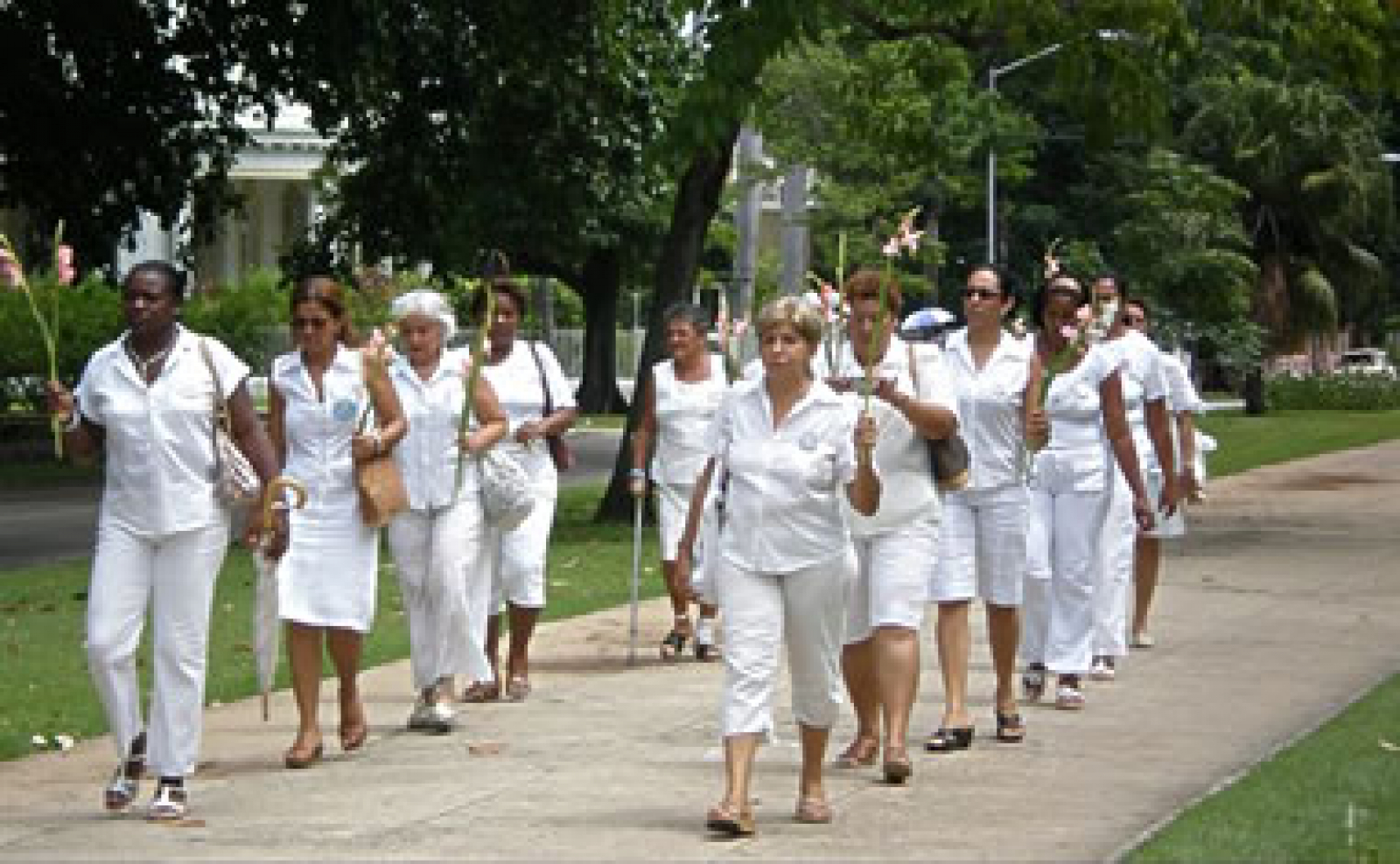
SHARE
For four days in March 2003, in what is known as the Cuban Black Spring, 75 Cuban journalists, librarians, and democracy and human rights activists were arrested and imprisoned by Cuban government officials. Those detained were sentenced to six to 28 years for their peaceful advocacy for political, social and economic reforms.
This March 18 marks the seventh anniversary of that event. Fifty-three of the original 75 still remain in prison, many of them suffering under severe conditions as well as physical and emotional abuse. According to the Cuban Commission on Human Rights, there are approximately 200 political prisoners in Cuba.
Their treatment was recently cast into the international spotlight with the hunger strike and subsequent death of Orlando Zapata Tamayo and the continued hunger strikes by other prisoners, such as Guillermo Fariñas Hernández, who has pledged to fast until death.
Zapata was a 42-year-old plumber and bricklayer who died Feb. 23 after he stopped eating solid food to protest what he said were repeated beatings by guards at the Kilo 7 prison in the eastern province of Camagüey. Initially sentenced to three years for public disorder and "disobedience," he was convicted of other acts of defiance while incarcerated, and by the time of his death, faced a total of 36 years in prison. Fariñas, 48, is a Cuban journalist and political activist who has been on hunger strike since Feb. 24 to protest Zapata's death and to demand the release of jailed dissidents and human rights activists, including several members of the press.
Many of those arrested during the Black Spring were members of the Varela Project, a peaceful campaign to demand greater rights and freedoms using a provision in the Cuban Constitution that enables citizens to introduce legislation with 10,000 signatures. "None of those convicted in April 2003 were charged with using or having weapons, inciting violence or disorder, espionage or any other crime," said Oswaldo Payá, the founder of the project. "They were convicted for expressing their opinion, exercising free journalism and promoting civic initiatives." Payá and fellow Varela Project organizers continue their efforts today to collect and verify additional signatures to mobilize Cuban citizens to promote peaceful political change and demand a referendum on democratic reforms.
Another activist movement, the Ladies in White (Damas de Blanco), was founded by the spouses and relatives of those arrested on March 18. These women continue to protest peacefully for the release of their loved ones by attending Mass each Sunday dressed in white. After the initial arrests in 2003, they issued a call for action stating, "We, the wives, mothers, sons and daughters of those men and women who find themselves unjustly incarcerated after the recent wave of arrests of peaceful Cuban dissidence, ask for solidarity and support for an international campaign to seek the immediate liberation of our family members, who have been arrested for exercising their right of freedom of expression and thought, and for pursuing national reconciliation and recognition of our human rights."
NDI's Cuba program seeks to promote international awareness of the activities of Cuban democratic activists by conducting outreach to political and civic leaders, and international organizations around the world to provide recognition, support and solidarity for those struggling peacefully for democracy on the island.
Black Spring Prisoners Who Remain in Prison:
Pedro Argüelles Morán, Victor Arroyo Carmona, Mijail Bárzaga Lugo, Oscar Elias Biscet, Marcelo Cano Rodríguez, Antonio Díaz Sánchez, Eduardo Diaz Fleitas, Alfredo Domínguez Batista, Adolfo Fernández Saínz, Efren Fernández Fernández, José Ferrer García, Luis Ferrer García, Alfredo Felipe Fuentes, Próspero Gaínza Agüero, Miguel Galván Gutiérrez, Julio Gálvez Rodríguez, José García Paneque, Diosdado González Marrero, Jorge González Tanquero, Lester González Pentón, Ricardo González Alfonso, Leonel Grave de Peralta Almenares, Iván Hernández Carrillo, Normando Hernández González, Juan Herrera Acosta, Régis Iglesias Ramírez, José Izquierdo Hernández, Librado Linares García, José Martínez Hernández, Héctor Maseda Gutiérrez, Luis Milán Fernández, Nelson Molinet Espino, Angel Moya Acosta, Jesús Felipe Mustafá, Félix Navarro Rodríguez, Pablo Pacheco Ávila, Arturo Pérez de Alejo Rodríguez, Horacio Piña Borrego, Fabio Prieto Llorente, Alfredo Pulido López, Arnaldo Ramos Lauzerique, Blas Reyes Rodríguez, Alexis Rodríguez Fernández, Omar Rodríguez Saludes, Omar Ruíz Hernández, Claro Sánchez Altarriba, Ariel Sigler Amaya, Guido Sigler Amaya, Ricardo Silva Gual, Fidel Suarez Cruz, Manuel Ubals González, Héctor Valle Hernández, Antonio Villarreal Acosta.
Pictured above: Members of the Ladies in White, a Cuban dissident group, demonstrating for the release of those jailed during Black Spring.
Published on March 18, 2010


